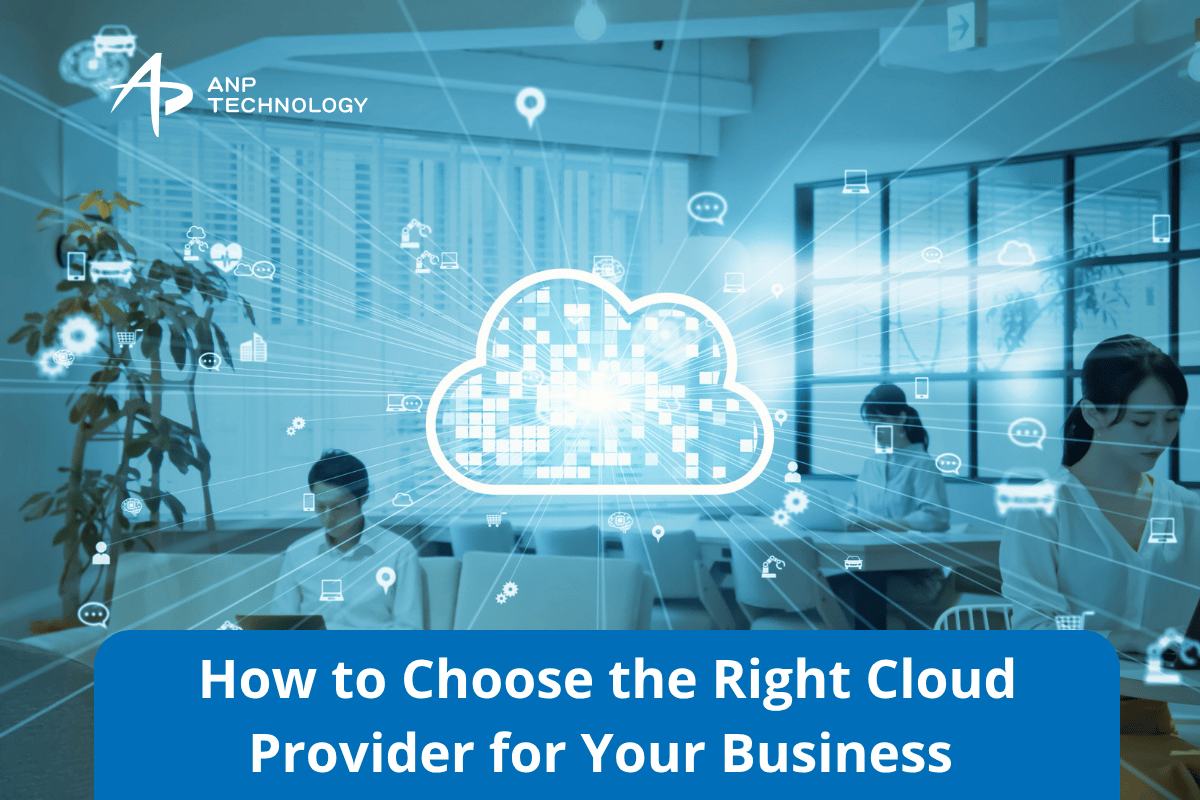
Cloud computing has become an essential technology in the modern business world. Many companies, both large and small, are turning to cloud services to improve operational efficiency, reduce costs, and accelerate innovation. However, with so many cloud providers out there, choosing the right one can be a daunting task. In this article, we will discuss the important steps you need to consider when selecting the right cloud provider for your business.
1. Define Your Business Needs
The first step in choosing a cloud provider is understanding your business needs. Every business has different needs, so it is important to know what your organization requires before selecting a service provider. Some factors to consider are:
- Type of Service Needed: Do you need data storage, cloud-based applications, or large-scale computing power? Defining the type of cloud services required will help narrow down your provider’s options.
- Scalability: Your business may grow over time, so choose a provider that can support your expansion and offer flexible scaling as your needs evolve.
- Security: If your business handles sensitive data, ensure the cloud provider offers adequate security features, such as encryption and robust access control.
2. Evaluate Security and Compliance
Data security is one of the most important aspects to consider when choosing a cloud provider. Make sure the provider you choose meets high security standards to protect your data and applications. Some aspects of security that you should evaluate include:
Data Security
- Encryption: The cloud provider should offer data encryption both at rest (stored data) and during transfer (data in transit).
- Authentication and Access Control: Check if the provider offers two-factor authentication (2FA) and strict access control to ensure only authorized users can access sensitive data.
- Firewall and Threat Protection: The provider should have protections against cyberattacks and other threats that could compromise your data.
Compliance with Regulations
- If your business operates in an industry regulated by certain laws (e.g., healthcare or finance), make sure the cloud provider complies with regulations such as GDPR, HIPAA, or PCI DSS, which are relevant to your industry.
3. Performance and Uptime
It is important to ensure that your cloud provider can deliver high performance and uptime. If your cloud provider experiences frequent downtime or poor performance, it can affect your business operations.
High Uptime
- Ensure the cloud provider offers a clear Service Level Agreement (SLA) regarding uptime, usually 99.9% or more. High uptime ensures that your cloud applications and services are always available.
- Do some research to find out if the cloud provider has a proven track record in maintaining uptime, especially during peak times.
Server Performance
- Check the speed and performance of the servers used by the provider. Ensure that their cloud servers are fast enough to support your applications and business workloads.
4. Cost and Payment Models
Cost is a major factor that influences the decision to choose a cloud provider. Most cloud providers use subscription-based models or pay-per-use models. Choose the payment model that fits your budget and business needs.
Payment Models
- Pay-as-you-go: You only pay for the services you use. This model is suitable for businesses that do not require continuous cloud resources and want to optimize their spending.
- Subscription-based: Some providers offer fixed-rate subscription models. This is more appropriate if your business has a predictable and stable need for cloud resources.
Cost Comparison
- Compare the pricing for storage, computing power, and bandwidth offered by different providers. Also, check if there are hidden fees for certain usage, such as data transfer or premium feature use.
5. Customer Support and After-Sales Service
Good customer service is crucial to ensure that your business can resolve any issues with the cloud services promptly. A good provider should offer 24/7 support to help you address problems at any time.
Support Services
- 24/7 Help: Make sure the cloud provider offers round-the-clock customer support through phone, email, or live chat.
- Trained Support Team: Ensure that the support team is knowledgeable about the cloud services and can resolve technical issues efficiently.
- Proactive Technical Support: A good provider should also offer proactive technical support, including monitoring issues and notifying you of potential service disruptions.
6. Scalability and Flexibility Features
Scalability is one of the primary reasons businesses move to the cloud. A good cloud provider should allow you to easily scale up or down depending on your business’s changing needs.
Resource Flexibility
- Auto-Scaling: Some cloud providers offer autoscaling, which allows you to automatically add or reduce resources (like servers and storage) based on demand.
- Easy Service Configuration: Ensure that you can easily adjust the services and cloud applications to meet your specific needs without requiring too much manual setup.
7. Technology and Innovation
Cloud technology is evolving rapidly, and a good cloud provider will always introduce new features and innovations to support your business needs. Choose a provider that offers the latest technologies that will help sustain long-term growth.
Cloud Service Innovations
- AI and Machine Learning Services: Many cloud providers now offer AI and machine learning tools, which can help businesses increase productivity and operational efficiency.
- Serverless Computing: A good provider will also offer serverless solutions, which allow you to manage applications more easily without having to deal with server infrastructure.
8. User Reviews and Recommendations
Before making your final decision, it’s important to look at reviews and recommendations from other users. This gives you a better understanding of the provider’s performance, reliability, and service quality.
User Research and Reviews
- Customer Testimonials: Look for testimonials or reviews from customers who have used the provider’s services. Consider both the positives and negatives faced by previous users.
- Case Studies: Some cloud providers provide case studies or reports on how they have helped businesses optimize their operations using their cloud services.
Conclusion
Choosing the right cloud provider is an important decision that can affect your business’s success and operational efficiency. By considering factors such as business needs, security, cost, scalability, customer support, and technology, you can select a provider that best fits your company’s goals and budget. Be sure to conduct thorough research and evaluate each provider before making your final decision.

Need assistance? Contact ANP Technology for a free consultation.



